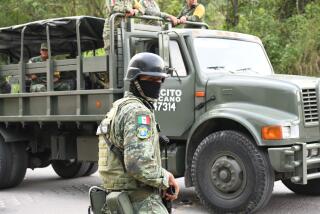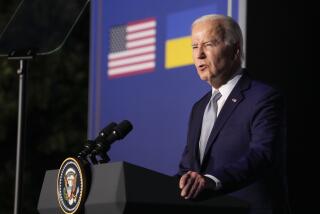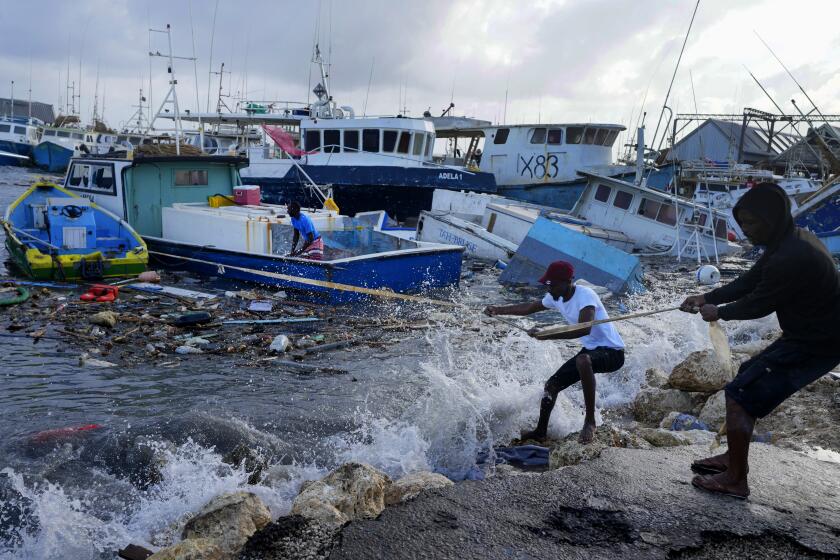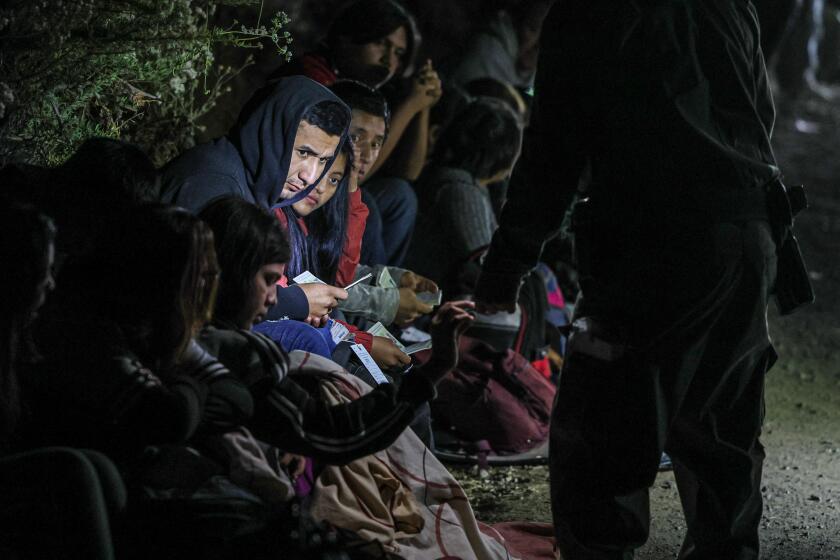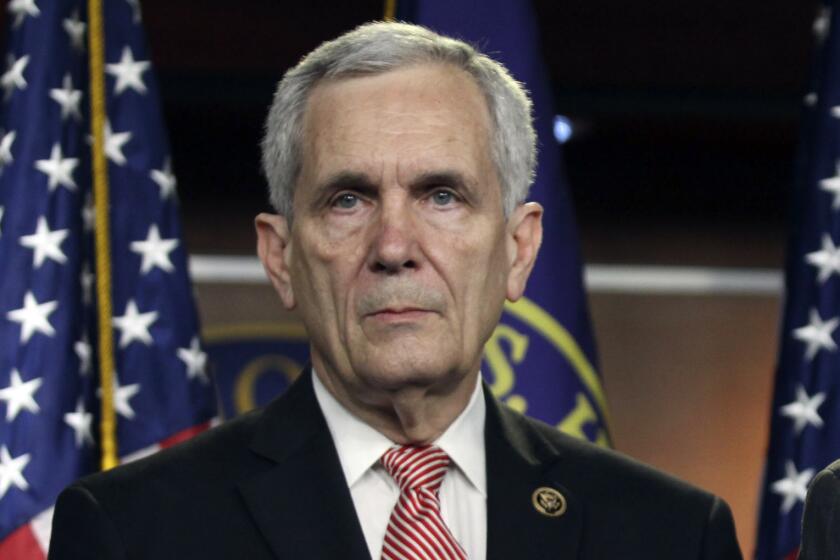As Serbs Bomb Sarajevo, U.N. Mission Is Under Fire
As the United Nations sacrificed another part of its mission of protecting Bosnian civilians, Bosnian Serb separatists Thursday shelled this besieged enclave for the seventh consecutive day.
A little girl and at least one other person were killed when a rocket slammed into a crowd waiting in line for drinking water, witnesses said. Thirty-two civilians have been killed and more than 100 wounded in the past week of attacks on Sarajevo.
The shelling came after the senior U.N. military commander in the Balkans rejected the use of NATO air strikes to attack rebel fighter planes that violated a U.N.-ordered “no-fly” zone over Bosnia.
Bosnia’s government expressed outrage at the U.N. decision, calling it a “capitulation” to the Serbs. Prime Minister Haris Silajdzic said in an interview, “They [the U.N. peacekeeping mission] say, ‘You keep on killing them, and we will keep our hands tied behind our backs.’ It is preposterous to talk of protection.”
Indeed, to critics, the United Nations seems to be surrendering each of the basic duties in its mandate, which involves protecting and feeding civilians made victims by a brutal war that has raged for more than three years.
U.N. officials Thursday attempted to defend the decision to reject a NATO call for using air power.
NATO aircraft Tuesday spotted two Serb warplanes flying over the Bosnian Serb stronghold of Banja Luka in north-central Bosnia. A NATO commander, Adm. Leighton Smith, asked permission to bomb a rebel airfield as punishment. But French Gen. Bernard Janvier, the head of U.N. military forces in the former Yugoslav federation, turned down the request, construing U.N. Security Council rules to mean the attack on airfields was prohibited.
In theory, the Bosnian Serbs risk NATO punishment every time they fly over Bosnia and every time they attack “safe areas,” the six Muslim enclaves ostensibly under U.N. protection. Sarajevo is the largest of these. But that punishment has been rare in the past, and now seems eliminated for the future.
*
The North Atlantic Treaty Organization and the United Nations did launch air strikes against Bosnian Serb ammunition depots on May 25 after the Serbs refused to return heavy weapons they had stolen from a U.N. weapons warehouse. The separatist Serbs responded to the air strikes by taking nearly 400 U.N. peacekeepers hostage, and the United Nations relented on Sunday by backing off on the issue of weapons-collection sites. This in effect relinquished the weapons--like those used to attack civilians this week--to the rebels.
Janvier met secretly this month with Gen. Ratko Mladic, commander of the Bosnian Serb army, and may have assured the Serbs that there would be no further air strikes.
Silajdzic, the Bosnian prime minister, questioned whether the United Nations still had a mandate or purpose here. “There is no ‘no-fly’ zone. There are no ‘exclusion’ zones. There are no ‘safe’ areas. So what is there?”
More to Read
Start your day right
Sign up for Essential California for news, features and recommendations from the L.A. Times and beyond in your inbox six days a week.
You may occasionally receive promotional content from the Los Angeles Times.
